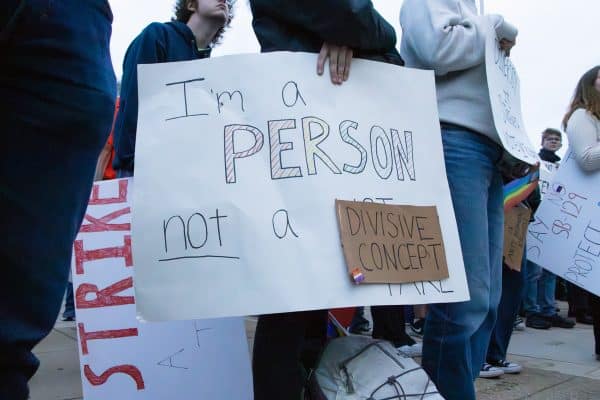Arguing with the umpire is never beneficial
September 14, 2018
This weekend, Serena Williams, who is undoubtedly one of the most famed and successful athletes in the world, lost in the U.S. Women’s Open Championship to Naomi Osaka. This loss, a product of Williams’ third code violation, was handed to her by the chair umpire, Carlos Ramos. The first violation was a warning for receiving coaching, and the second resulted in a reduction of points after she smashed her racket on the court.
Williams began arguing with the umpire during the match, calling him a “thief.” This led to Ramos’ decision to present the third code violation, citing “verbal abuse,” ending the match in a victory for Osaka. Afterwards, the crowd heckled the match administration and booed as the competitors stood to accept the result of the match.
The noise in the news that this match created was bound to be loud from the beginning, given Williams’ unexpected loss. The game of women’s tennis today idolizes Serena Williams – so much so that her opponents can be seen in interviews simply being grateful to play on a court with her, with less focus on the competition itself.
Williams deserves no discredit for her athletic achievements. No athlete reaches the point she has reached without uncountable hours of training and an unparalleled level of dedication. However, the pedestal she’s on is too high, as exemplified by the inherent expectation of how a championship-level game should be played lowering the level of competition. Osaka downplayed her own efforts and withstood an entire audience booing in disapproval of the result of the match, tarnishing what could possibly be one of the greatest achievements of her career. After watching clips of the game and post-game coverage, I can see Williams essentially facilitates these matches, and anyone who disagrees with her is quickly painted as a villain.
The conflict gained more momentum when Williams accused Ramos of treating her in an unfair way because of her gender. Later, cartoons of Williams by Mark Knight, editorial cartoonist for Australia’s “Herald Sun” newspaper, emerged. They depicted Williams in a toddler-like manner throwing a fit because she lost, while Ramos is saying to Osaka, “Can you just let her win?”
Prominent individuals such as J.K. Rowling began accusing the cartoons of containing racist ideas, propelling the story of Williams’ loss further into the spotlight this weekend.
When you add a high-level athlete to accusations of sexism and racism, you get a particularly high-profile story, especially in today’s political climate.
Here is why Serena Williams is in the wrong: When you reach such a level of stardom and success as an athlete, you become a role model for many, particularly younger children. In Serena’s case, this is often manifested in young, black women. You also begin to have obligations to others. Sponsors rely on you for promotion. Management teams rely on your success for their own payment. League administration expects you to cooperate with them in the best interest of the sport. The list goes on. Given such a large audience, you have a responsibility to lead by example. Smashing your own racket on the court is not the way to do so.
When it comes to arguing with a referee, anyone who has played sports at a competitive level knows there is an intrinsic regard to be upheld for officials. They call the games to the best of their abilities in accordance with league rules set before them and the players, and any coach with respectable standards encourages his or her players to respect the referees and their decisions in any scenario. I’m not implying this is easy by any means – many athletes have found themselves in a heated engagement with a referee at some point. However, at her level, it is unacceptable.
When it comes to the altercation itself, I’d like to address the accusations of sexism and racism. Williams believed Carlos Ramos treated her unfairly because she is a woman, saying that men could do the same that she did – meaning break her racket on the court and call the referee a thief – and not receive the same punishment. Now I’m not too naïve to deny that there is some truth to what Serena is saying here, on a much broader scale. I agree that breaking things and arguing is often more accepted from men than from women. If or how that needs to be addressed is not for this column. But to say that she was treated differently in this particular instance because she is a woman (in a women’s league) is to either imply that this referee specifically made an effort to give Williams a loss, making it personal, or that a sexist light shines on the entire league.
The former seems easy to believe from Williams’ perspective, particularly in the moments before the match was called. When competing in a match like this, it’s easy to get caught up in believing the official is out to get you. This official didn’t suddenly land on the U.S. Open court one day calling important games without first earning such a significant duty. He reached some level of success himself as an umpire, and that is to be respected as well. He is there for good reason, and he is fully aware of the circumstances of the situation and the eyes that are closely watching him.
It is foolish to think this man would risk his entire career in such a high-stakes event to personally attack Williams, whose circle of support is so prominent. He knows the league and the onlookers would never allow sexist behavior, especially in today’s world. If instead, Williams is implying that the league as a whole is sexist, then, well, the same logic applies. The women’s professional tennis league is not filled with sexist individuals running the entire operation because, again, it’s foolish to think that could exist in the present day. If from nothing else, that is evidently shown by Williams’ prosperity.
I will address the cartoons by saying I do not support personal attacks against anyone on the basis of behavior or appearance. I don’t agree with this conduct, but I do understand that the creator of those cartoons has a job and that is it to produce such content. However, they were not racist, and cartoons of similar nature depict all varieties of individuals every single day in this demeaning manner. In other words, these allegations – arising from a desire to find someone else to convict on Serena’s behalf – suggest that the exaggeration of Williams’ physical features originate from racist objectives, yet nearly all political cartoons implement these same techniques.
This occurrence should not be defining of Serena Williams’ career or character, but she should be aware that her behavior was not appropriate. You can’t demand an apology from a referee in the middle of a match and not appear like an over-entitled individual who is merely unhappy with the result.
Always show respect. To my readers and to Serena, learn from these mistakes, and then move on.











